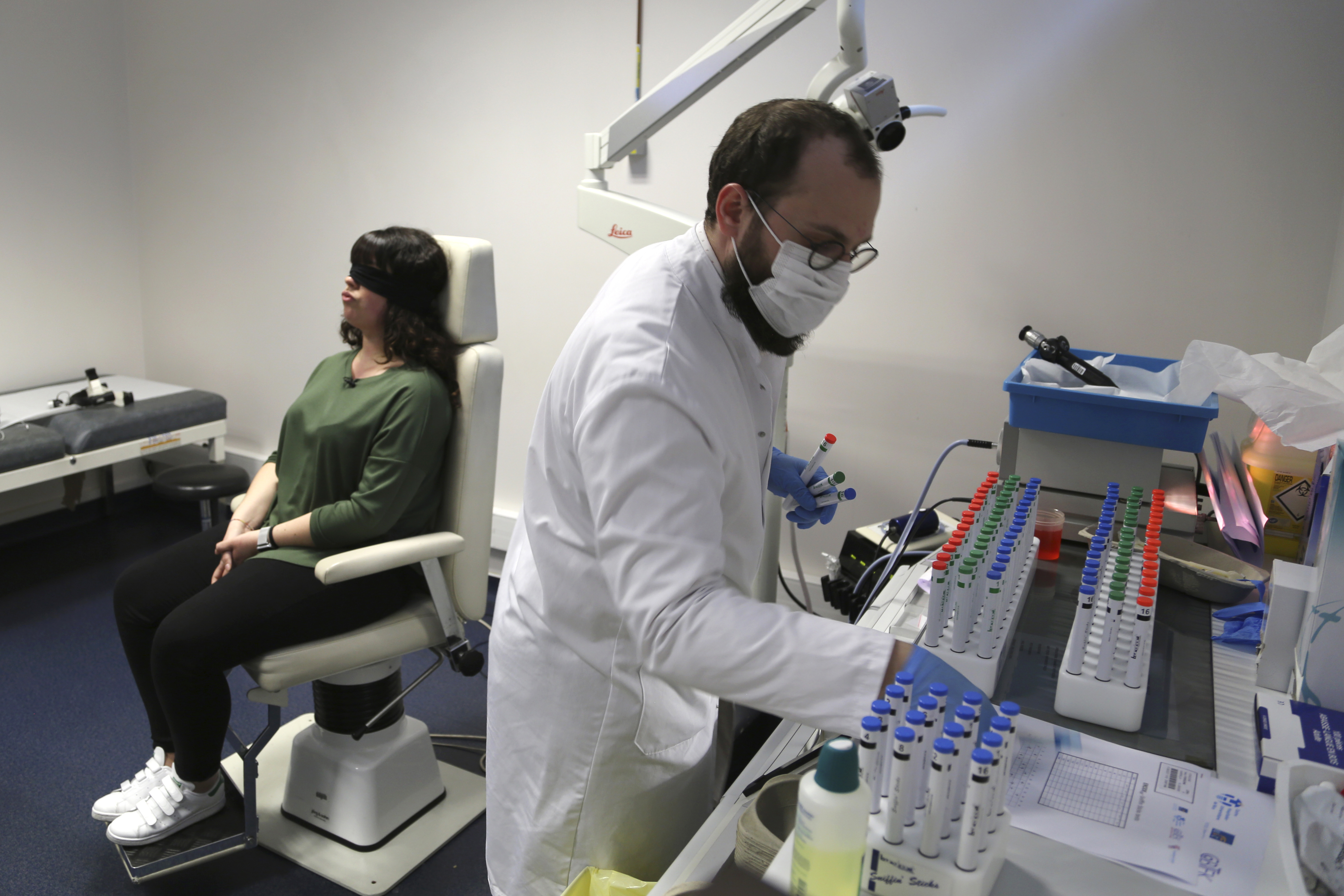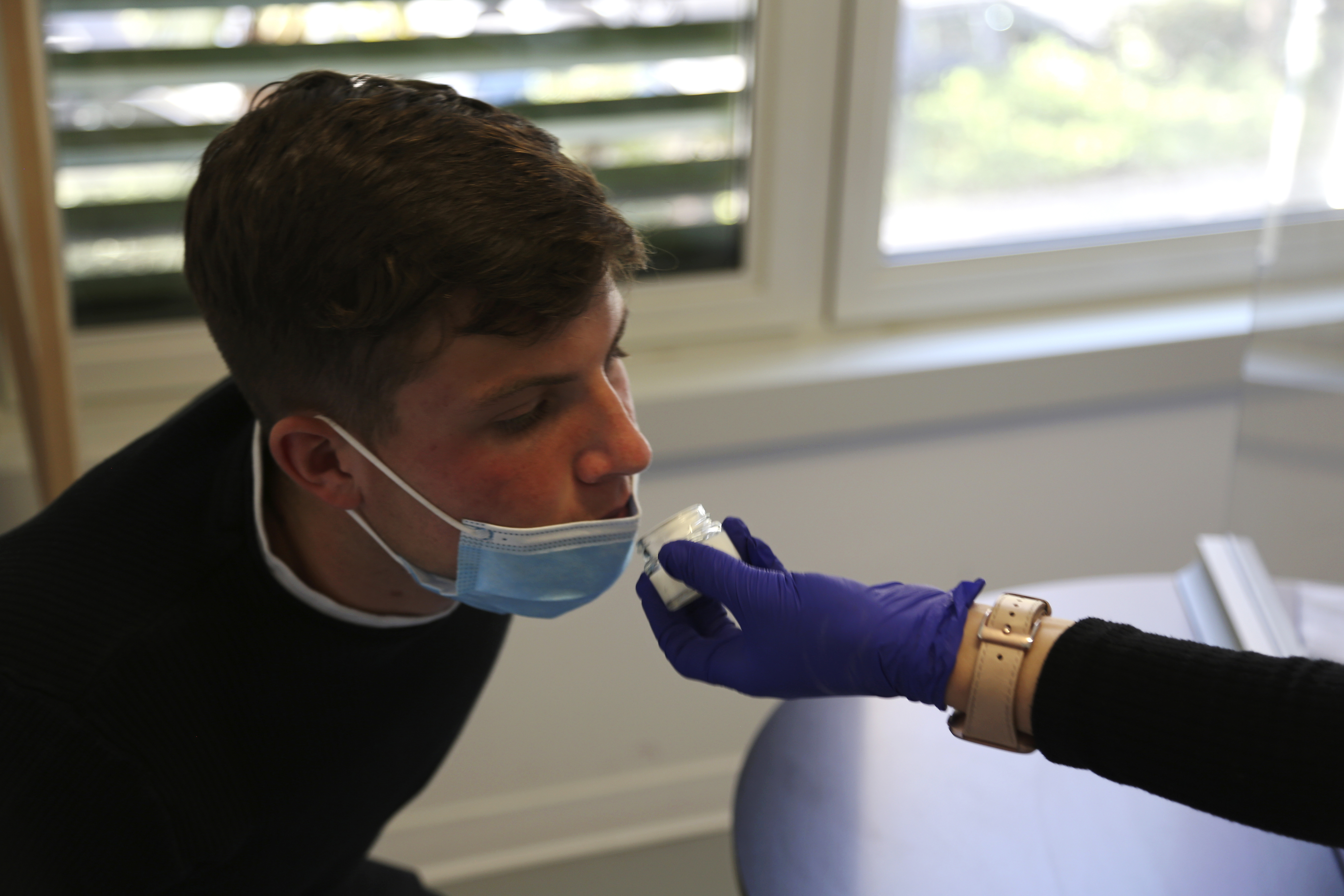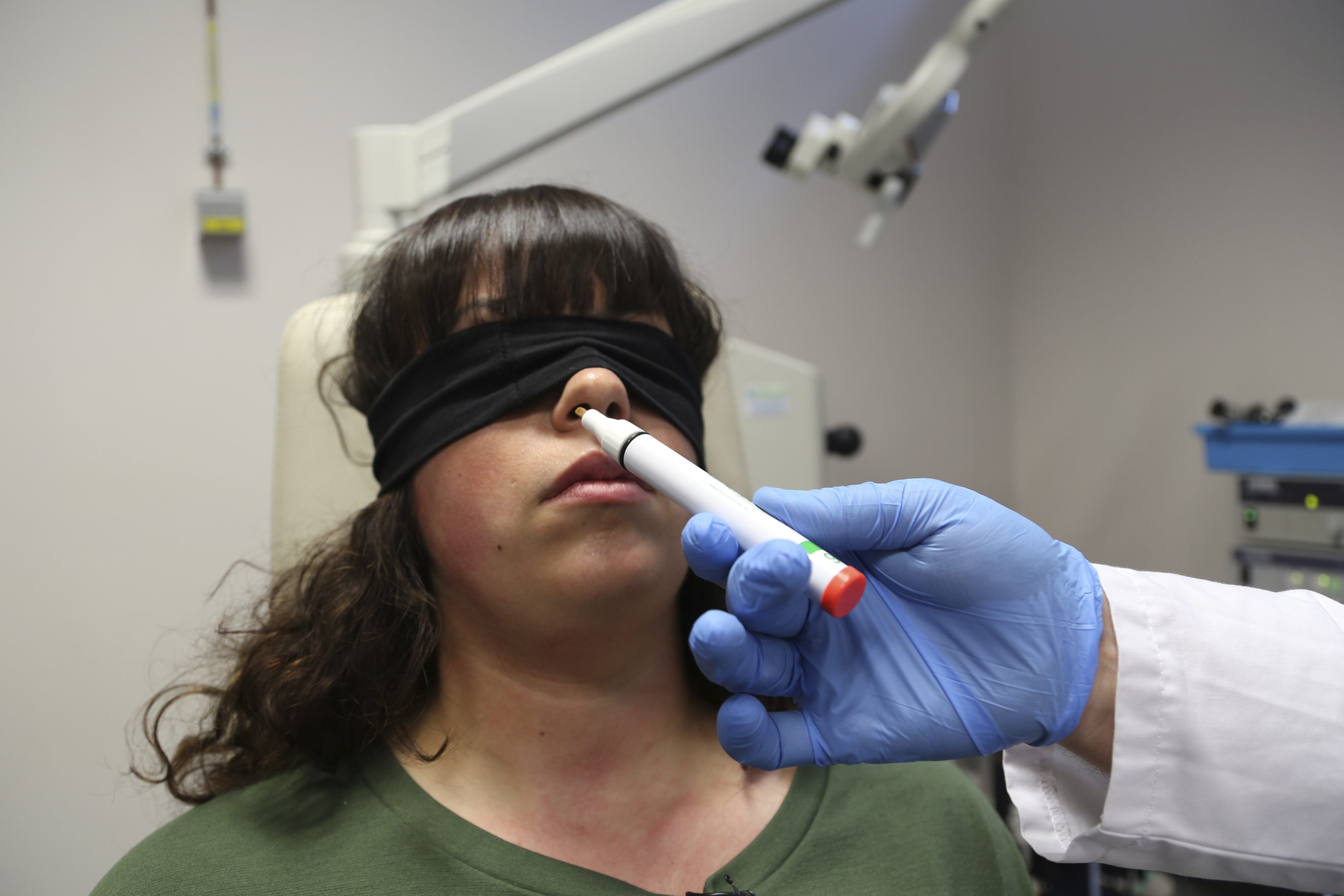The COVID-19 pandemic has brought on an "emerging public health concern" of people losing their sense of smell, according to new research published on Thursday.
The research published in JAMA Otolaryngology-Head & Neck Surgery estimated that between 700,000 and 1.6 million people in the US who had COVID-19 have lost or had a change in their sense of smell that has lasted for more than six months.
This is likely an underestimate, the authors from Washington University School of Medicine in St. Louis said.
READ MORE: NSW records drop in COVID-19 cases

The study suggests most people recover their sense of smell eventually, but some may never regain it.
The authors consider this a concern because, by comparison, prior to the pandemic, only 13.3 million adults age 40 and older had what scientists call olfactory dysfunction (OD) or chronic olfactory dysfunction (COD).
"These data suggest an emerging public health concern of OD and the urgent need for research that focuses on treating COVID-19 COD," the study said.
A study last year found that 72 per cent of people with COVID-19 recovered their sense of smell after a month, but for some, it is a much slower process.
"The long-term disease burden from this, we're literally going to be dealing with this for decades," according to John Hayes, director of the Sensory Evaluation Centre at Penn State's College of Agricultural Sciences.
Mr Hayes did not work on this study but has done research in the area.
He thinks the estimated number of people in the study with this problem is conservative and the issue could impact many millions more.
While a long-term loss of a sense of smell may sound trivial compared with other symptoms of long COVID-19, such as chronic fatigue or heart problems, not being able to smell can be dangerous, he said.

READ MORE: Queensland PCR test requirement under review
A 2014 study found people who have lost their sense of smell were more than twice as likely to experience hazards such as eating spoiled food, as those who did have a sense of smell.
A loss of a sense of smell has also been linked to depression in earlier studies.
"It's really consequential to appetite and social relations, like people have lost their sense of smell may not be able to detect if they have body odour, and can impact diet too," Mr Hayes said.
Hayes said his research with COVID-19 patients has shown that they've experienced three different kinds of long-term olfactory disturbances.
Some lose or have a diminished sense of smell.
Some have a sense of smell that is off, where instead of flowers, for example, someone would smell stinky feet.
Others may have what Mr Hayes calls a kind of "phantom limb syndrome" for a sense of smell, where people smell things that aren't actually there, like a persistent chemical or burning smell.
Dr. Sandeep Robert Datta, a neurobiologist at Harvard Medical School who has been studying why people with COVID-19 lose their sense of smell, said this is an important line of research.
"We've never really had a formal estimate made of how many people have been struggling with this," Mr Datta said.
"This is a really unusual event in terms of olfactory dysfunction and an unprecedented consequence of a pandemic that's never really been observed before."

READ MORE: Austria to enter lockdown, bring in mandatory vaccinations
Unless someone breaks their nose in an accident, or had some other kind of head trauma, it's unusual for younger people to lose their sense of smell, particularly from a virus.
As people age, some do lose some sense of smell.
One study found 60 to 70 per cent of people 80 years and older have some degree of smell dysfunction.
Other studies suggests it may impact fewer people, but this loss typically happens slowly over time; an acute loss is unusual.
Scientists are still trying to figure out why people with COVID-19 lose a sense of smell.
Dr Datta said the consensus seems to be that there is a disruption in the support cells in the nose.
He said it's unlikely that the neurons responsible for detecting odours are being directly attacked by the virus.
"After that, there's still a lot of mystery as to what's going on and in many labs, including my own, we continue to work on this problem," Dr Datta said.
Understanding how COVID-19 has warped someone's sense of smell will be important for scientists to determine how to help them regain it, if it doesn't come back on its own.
Some long COVID-19 clinics have been offering a kind of physical therapy for the nose and retraining people's sense of smell by exposing them to certain oduors so they can try and relearn them.
Studies show this can work for some people, but not everyone.
"I had a patient call me the other day and ask what could be done and honestly, I don't have any good recommendations yet," Mr Hayes said.
from 9News https://ift.tt/3HEriGb
via IFTTT



0 Comments